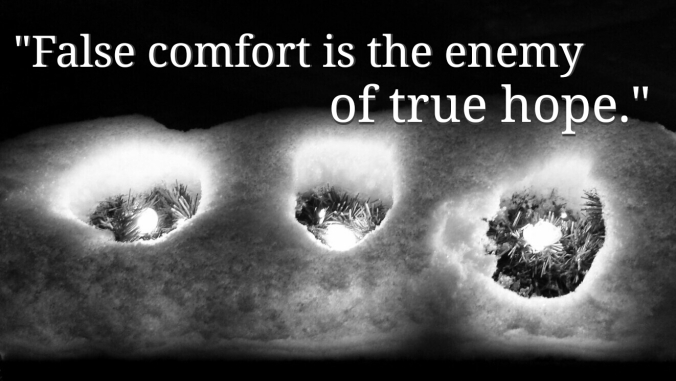
Readings: Psalms 102; 148, Amos 5:1-17, Jude 1-16, Matthew 22:1-14
In the aftermath of Hurricane Katrina, thousands of volunteers arrived to help the residents of New Orleans recover. Among them were con artists who accepted large down payments for construction work then skipped town. Every year Americans with terminal and/or chronic diseases spend hundreds of millions of dollars on unproven and frequently dangerous “cures.” People who can barely afford to eat donate money they can’t afford to televangelists who teach a fraudulent prosperity gospel. Politicians convince generation after generation to blame the latest wave of immigrants (Irish, Asians, Jews, Syrians, etc.) for societal ills because they know fear mongering is good campaign strategy.
When people are desperate or afraid, they are especially vulnerable to the false comforts of people who tell them what they want to hear. The author of Jude warned early Christians to be wary of people spreading false doctrine that taught self-glorification over submission to Christ: “These are grumblers and malcontents; they indulge their own lusts; they are bombastic in speech, flattering people to their own advantage.” Today we don’t worry much about the religious orgies contemporary with Jude’s audience, but we should be wary of leaders who conflate secular concerns like capitalism (and other economic systems), democracy (and other government systems), or nationalism (and other tribalist systems) with Christianity in order to exploit our fears and insecurities.
In the parable of the wedding banquet, Jesus describes the wedding of a king’s son where many were invited but chose not to attend, and this lack of commitment resulted in their deaths as commanded by the king. The king’s slaves collected a second round of guests including everyone they found on the street, but even these guests were not all safe, “for many are called but few are chosen.” Those chosen few sought hard truths over a diluted and convenient message.
Our world can be scary. Our instincts can be base. Many will take advantage of that combination to spread beliefs that are not in our best spiritual interests. False comfort is the enemy of true hope. Let us be wise and make sure our hope is placed in Christ.
Comfort: We can identify true hope by comparing it to Christ’s example.
Challenge: Be wary of people who would exploit your faith for their own gain.
Prayer: I keep the LORD always before me; because he is at my right hand, I shall not be moved. (Psalm 16:8)
Discussion: Are there any parts of your life where your secular expectations are in conflict with your religious ones? If not … why not?
Join the discussion! If you enjoyed this post, feel free to join an extended discussion as part of the C+C Facebook group. You’ll be notified of new posts through FB, and have the opportunity to share your thoughts with some lovely people. Or feel free to comment here on WordPress, or even re-blog – the more the merrier!